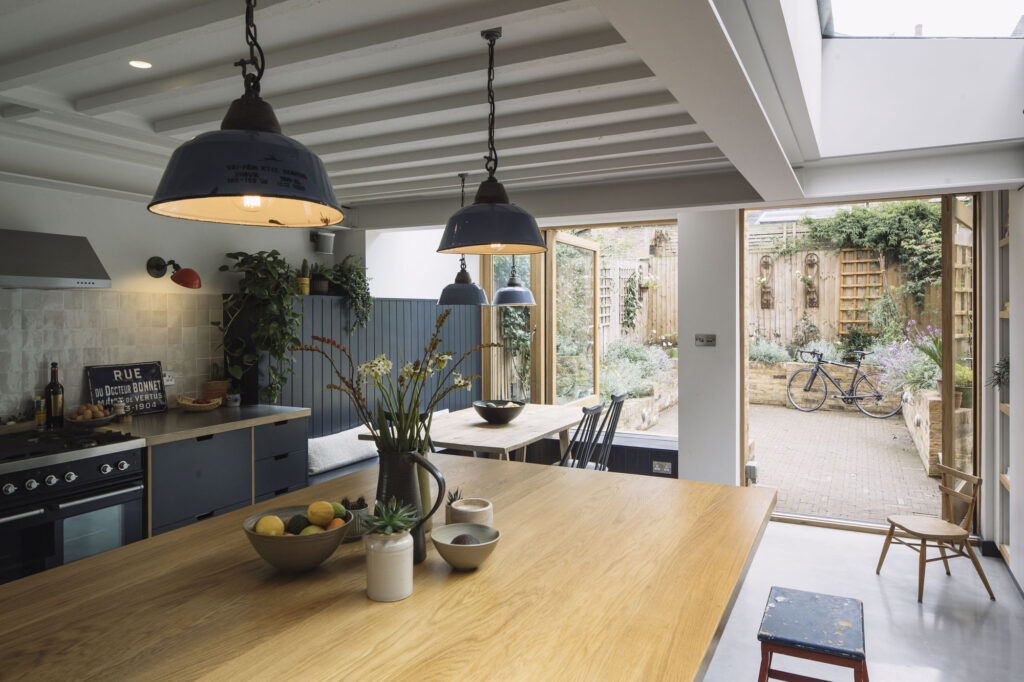Each room in your house deserves to be adequately lit, and each lighting choice serves various purposes. For example, the kitchen and home office require lighting focused on the tasks you’re doing. In living areas and bedrooms, you need more indirect, overall lighting.
It is no secret that adequate lighting can help you with your daily tasks. Nonetheless, it can affect your mood, too. With that in mind, you can stay productive at home with the proper lighting.
How the Lighting Quality Affects Your Everyday Life
Whether you have artificial or natural light, it has a different effect on our lives. Natural light is better to gain more health benefits. Artificial lights allow you to place it wherever you please, enabling you to see better. Both kinds have in common: you can control them to improve your home’s lighting quality.
Did you know that the lighting in your home influences your body clock? It has something to do with how most people can’t sleep with bright lights. Your sleep cycle delays when you’re exposed to bright lights in the evening, making you sleep later. Not only will you get poor sleep quality, but it will also shorten your sleep.
With all those working hours and personal life, and other stressors, you’re going to need as much sleep as you can. Even if you say you don’t mind sleeping with the lights on, your body does.
Good lighting also impacts your focus and productivity. That’s why proper lighting is essential when you work or study. It is also important to note that a warmer light makes you feel less tired and uneasy, especially when you do activities where you stare at something. Warmer lights are more comfortable for the eyes, preventing them from straining, leading to tiredness and headaches.
An ample amount and quality of light improve mood and energy levels. Poor lighting can contribute to depression and other deficiencies in the body. It influences our concentration and even our appetite.
Giving Your Home a Lighting Makeover
In the Living Room
In this area of your house, you want your lighting to be accurate for casual entertaining. Flexible track lighting is certainly for living rooms that serve multiple purposes. This is perfect for the ambient, task, and accent lighting since you can adjust the lights by moving and rotating them or even changing the lighting scheme without messing up the light bulb.
In a living area that includes a TV, you can create a movie-theater vibe by installing lights that don’t cause shadows or glare, which can be disturbing. You can turn on pendant lights once the TV is off. While you’re watching, adjustable sconces, track lights are best to use.
In the Dining Room
The dining area is where socializing happens. You don’t want poor, dark lighting in here either so it needs one good overall lighting. Aside from that, you can also get ceiling fixtures like flush-mount and recessed can lights. A ceiling fan with lights is also a superb choice. For a more fancy setting, a chandelier can be bother decorative and helpful in providing overall light.
As part of your lighting makeover, you can have your windows replaced with bigger ones. This way, you have beautiful natural lighting, which can save you money from energy bills. Another brilliant piece of interior advice is to put up mirrors opposite the windows to allow more light to reflect inside your home. You can also apply this in your other living areas and even in your bedroom. It also makes the room feel spacious and breathable.
In the Kitchen
The kitchen is the type of area in the house where you need more lighting since you do a lot of things like cutting with sharp knives and reading labels on certain ingredients when you’re cooking.
For ambient, general lighting, get a ceiling fixture or recessed can lights, which you can match with the lighting in the dining room. The lights must be dispersed throughout the kitchen. Add light sources directly above where you do the tasks, like above counters and stovetops, especially when your counters are below your cabinets.
In the Bathroom
Poor lighting in the bathroom is simply unflattering and unsafe. Avoid putting up lights the look down directly at the mirror. They will cast shadows and can be inaccurate when putting on your makeup. You can also add fixtures like pendants, scones, and on each side of the mirror to make it balanced.
Conclusion
Each lighting purpose differs in intensity and location. Like when you do something on your desk, you need a desk lamp and you don’t want it too bright or too dim. Then again, it depends on the general lighting of the room. More importantly, it depends on your personal preference.
